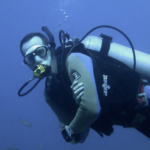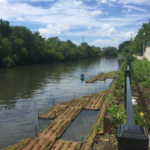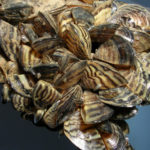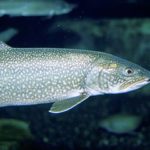Using a three-zone buffer system around a stream can dramatically improve water quality. Zone in on this: When we destroy the ecosystem along a stream, we threaten water quality, displace wildlife, and increase the risk of flooding. Robert Tjaden of the University of Maryland says that a three-part buffer between the water and adjacent land …
Category Archive: Biodiversity
Permanent link to this article: http://www.currentcast.org/stormwater-management/protecting-a-streams-comfort-zone/
Jan 17
Bioacoustics in the Great Lakes
A “sound” strategy for learning about fish: Aaron Rice, of Cornell’s Bioacoustics Research Program, tracks fish populations and behavior. He does it using sound. Rice: “The advantage of using sound as a survey method is that with digital recording technology that’s available now you can take a hydrophone, connect it to a essentially waterproof computer …
Permanent link to this article: http://www.currentcast.org/water-and-energy/bioacoustics-in-the-great-lakes/
Jan 15
Floating Urban Islands
Floating gardens in the Chicago River provide new habitat for wildlife: For many years, Chicago’s rivers have been used for transportation and commerce… Damato: “…But now they should be used for habitat and interaction.” That’s Zachary Damato of the nonprofit Urban Rivers. His group is installing man-made floating wetlands in the Chicago River. They’re essentially …
Permanent link to this article: http://www.currentcast.org/green-infrastructure/floating-urban-islands/
Jan 10
Too Little Phosphorus
The lowdown on phosphorus levels… Listen up: Mussels are great water filters, but too many can do more harm than good. Excess phosphorus is a problem in many parts of the Great Lakes. But in Saginaw bay, invasive mussels are removing so much that there’s not enough making its way to the deep waters of …
Permanent link to this article: http://www.currentcast.org/biodiversity/too-little-phosphorus/
Jan 07
Fish Talk
Scientists listen in on a world of underwater sound. Listen up: When Aaron Rice eavesdrops on a conversation, he hears plenty of pops, purrs, clicks and grunts. As Research Associate at the Bioacoustics Research Program at Cornell University, he listens to fish. The sounds usually have something to do with aggression or reproduction – and …
Permanent link to this article: http://www.currentcast.org/sustainable-fisheries/fish-talk/









